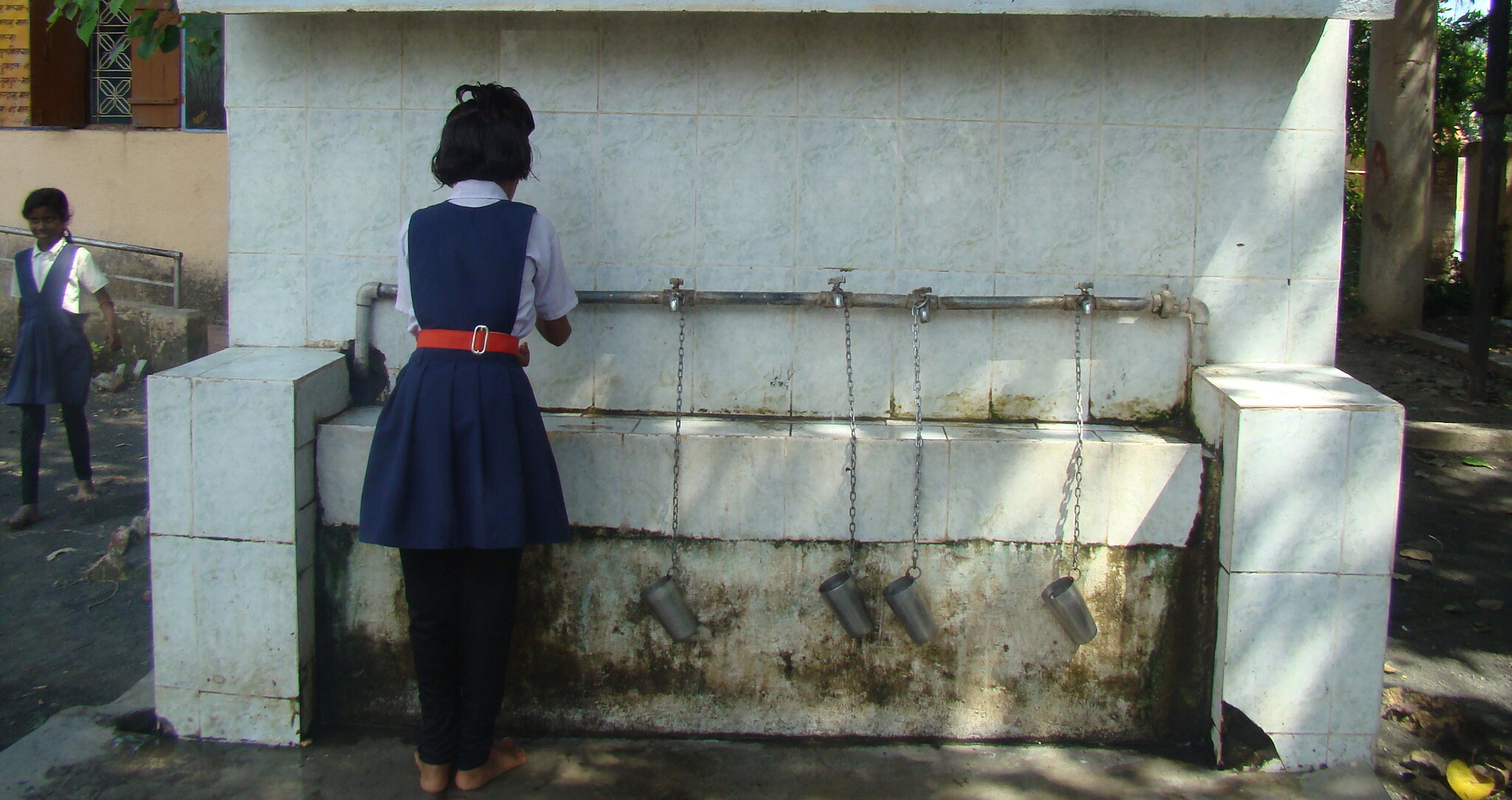Bhiwadi, Alwar, Rajasthan, India
In collaboration with

February 2024 – December 2024
Clean, hygienic facilities, especially for girls. Improved access to drinking water in an area affected by natural fluoride contamination.
Objectives
- Improve sanitation and install two drinking water systems and dispensers at the Government Senior Secondary School.
- Separate sanitation facilities for boys and girls.
Beneficiaries
560 direct
Students at the school, of which 160 are girls
On the Ground
Lack of adequate sanitation and hygiene facilities in schools. High rate of open defecation. Natural contamination of groundwater with fluoride.
According to the latest census on drinking water and sanitation, nearly one in two people in India practice open defecation, one in three consume unsafe drinking water, and at least 1,000 children die every day from preventable diseases like diarrhoea.
Health and hygiene heavily depend on adequate water and sanitation infrastructure, along with awareness and attitudes regarding health and hygiene. The World Health Organization (WHO) and the United Nations Children’s Fund (UNICEF) estimate that 1.1 billion people lack access to improved water supplies, and 2.6 billion people lack adequate sanitation.
Diarrhoeal morbidity can be reduced by an estimated 6-20% with improvements in water supply and by 32% with better sanitation. Teaching children about hygiene and sanitation is critical to changing India’s landscape of open defecation, as children are effective social change agents.
The area selected by Habitat India faces issues related to a lack of safe drinking water, which often affects student attendance. Due to the absence of these facilities, many children—especially girls—drop out of school, impacting their future.
Rajasthan is India’s most water-deficient state due to a short monsoon season and low rainfall. Unfortunately, nearly 25% of the state’s villages suffer from high fluoride levels in groundwater. Providing safe drinking water in communities and schools is essential.
The selected area in Rajasthan has issues with a lack of adequate sanitation and hygiene facilities in schools. The bathrooms are in poor condition and non-functional.

In Detail
Project Activities
Situation Analysis and Technical Assessment
- Understand on-ground realities and acceptance, including existing infrastructure and available support. Select intervention sites.
- Obtain government permits for project implementation
Orientation, Awareness, and Training
Construct basic infrastructure and support services and provide technical assistance: Construction will be conducted under technical supervision to ensure quality materials and adherence to design and construction timelines.
Project Implementation: Monitoring and Supervision
- Ensure regular monitoring through visits and periodic updates.
- Oversee adherence to the construction plan in coordination with field members, government authorities, and technical experts.
Documentation and Evaluation
- Ensure consistent technical monitoring, review, and evaluation support to achieve expected outcomes.
- Prepare quarterly and annual progress reports, including financial statements, to share with stakeholders and donors
Prospects for Sustainability
Regular monitoring and evaluation of facilities and program-related training ensure sustainability.

